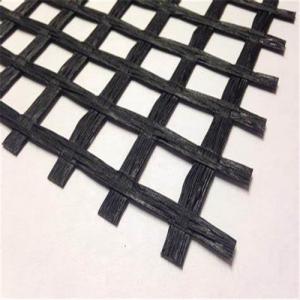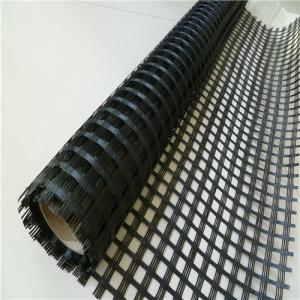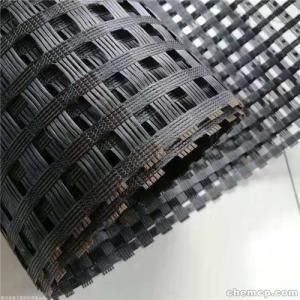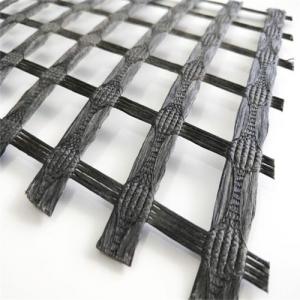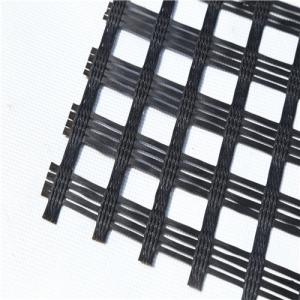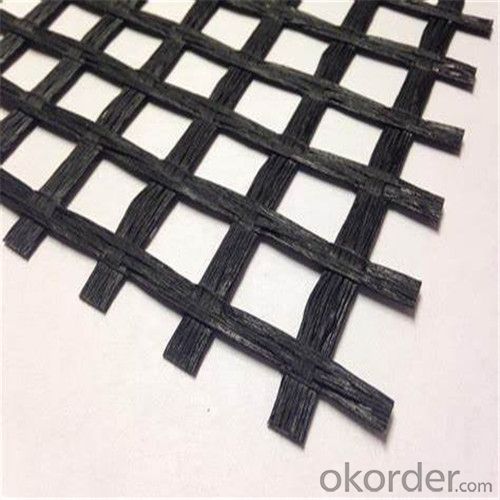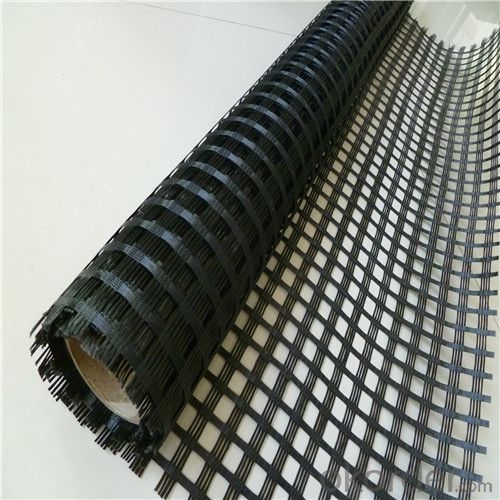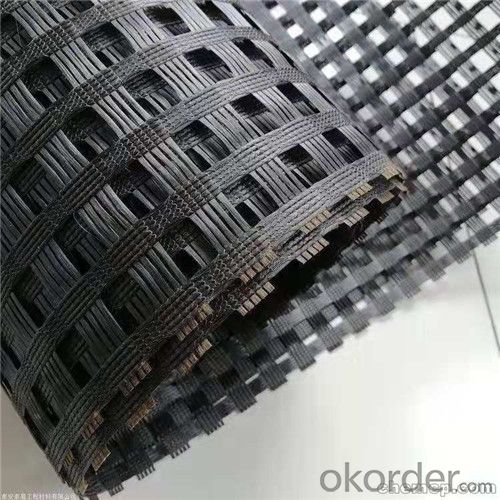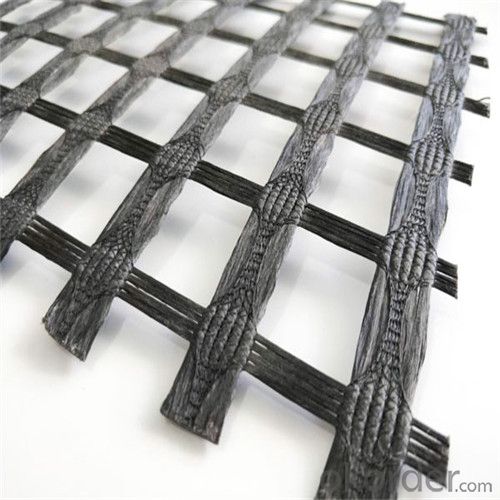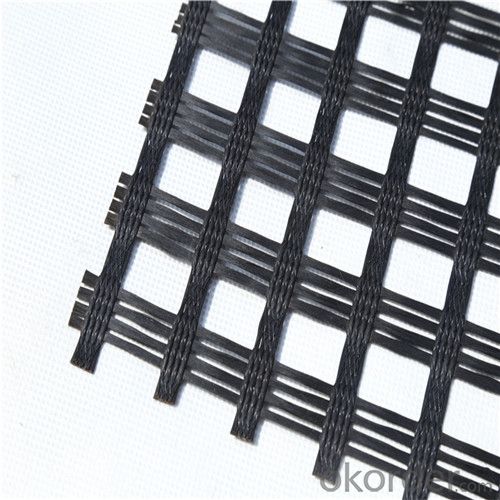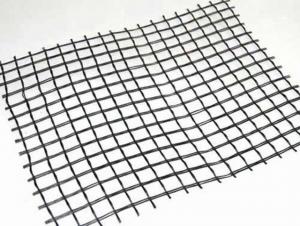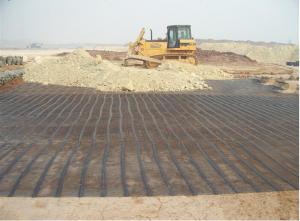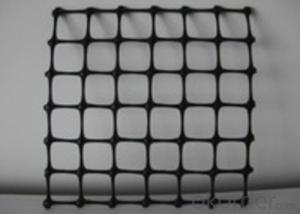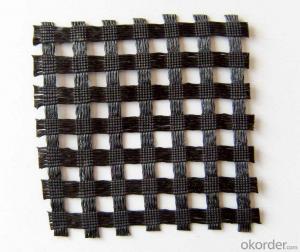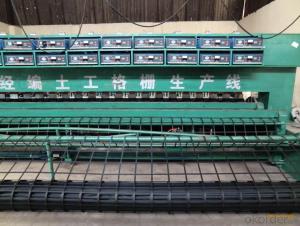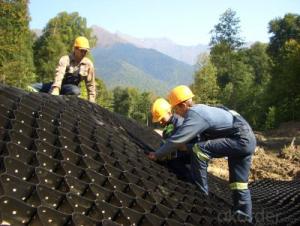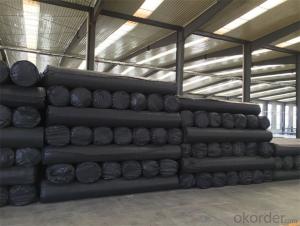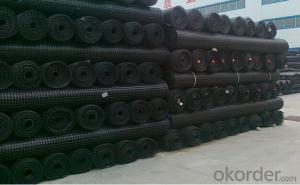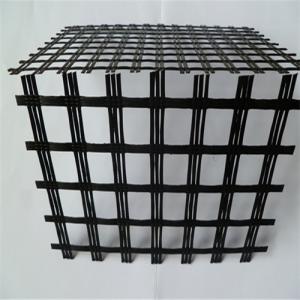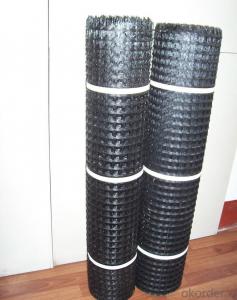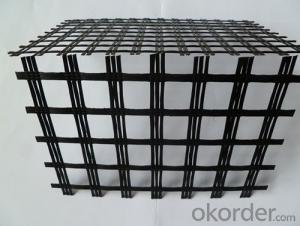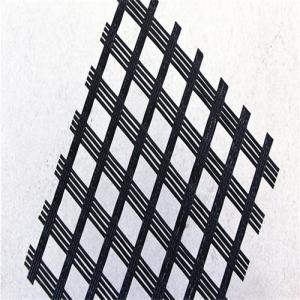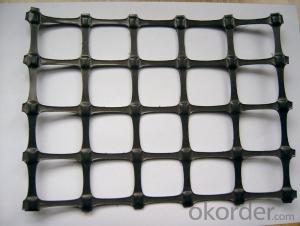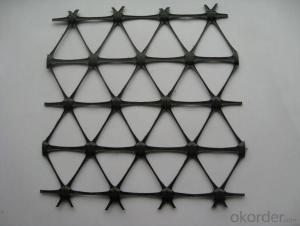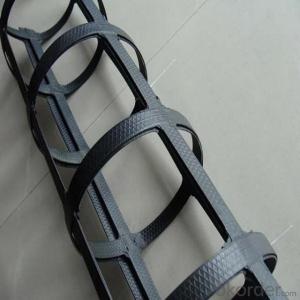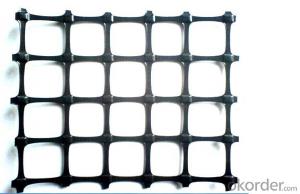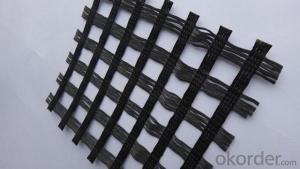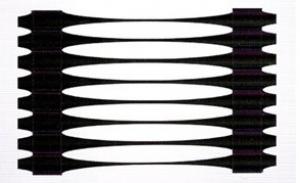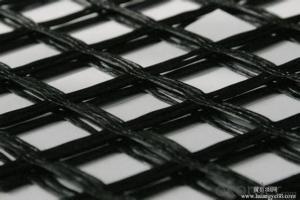Fiberglass Geogrid for Road Construction
- Loading Port:
- Shanghai
- Payment Terms:
- TT or LC
- Min Order Qty:
- 85800 m²
- Supply Capability:
- 1000000 m²/month
OKorder Service Pledge
OKorder Financial Service
You Might Also Like
Fiberglass Geogrid Description
Fiberglass geogrid is a kind of new favorable earthwork base material to strengthen the road surface and roadbed. This product is made by weaving and covering fiberglass filament. It is featured by high vertical and horizontal tensile strength, low unit extension, high flexibility, and favorable high and low temperature resistance. The products after surface covering own the favorable property of alkali resistance and aging resistance.
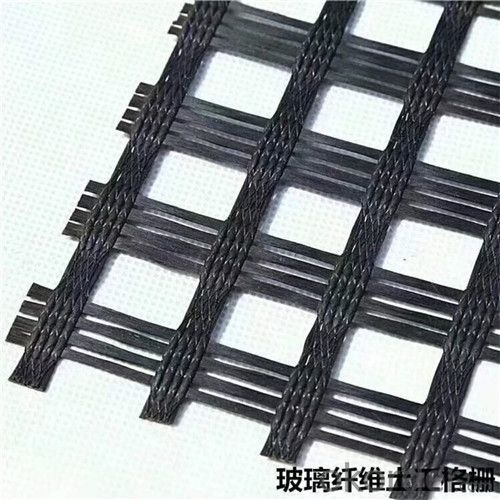
Fiberglass Geogrid Specification
| Type: | Geogrid | Material: | Fiberglass Geogrid | Place of Origin: | China (Mainland) |
| Certificates: | CE,ISO | Color : | White & Black | Width : | 1m--6m |
| Length | 50-200m | Mesh Size: | 10-40mm | Tensile Strength | 30KN-300KN |
| Area Weight | 130-900g/sm | Package | PP bags or PE film | Approximate mesh size | 12.7*12.7 25*25 40*40 |
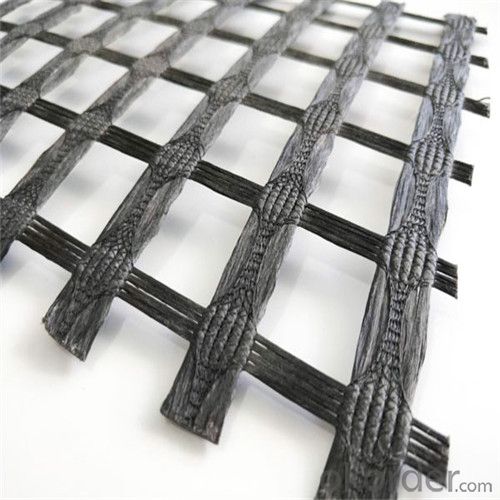
Fiberglass Geogrid Packaging & Delivery
| Packaging Details | PP bags or PE film. Or Packed as customers' requests; |
| Delivery Detail | 10-20days after see the payment. |
Remarks: we are very large fortune 500 enterprise with more than 20branches in worldwide, and have almost ten years export experience in geosynthetic field. We have kunlun bank account and have many Iran geosynthetics customers.So if any question or support, please just feel free to contact me at any time.
- Q: meters. Material: tgsg. This section of subgrade for soft soil foundation (water) what is the purpose and principle of this treatment? Seeking answers experienced master change, or in the design the unit did. Thank you. Do a detailed description of indebted forever. My understanding is...Geogrid width of 3 meters, the berm soil subgrade body laying 1.4 meters, laying 1.6
- Do you understand the true role of geogrid?
- Q: What is the cost of geogrid installation?
- The cost of geogrid installation can vary depending on various factors such as the size of the project, the type and quality of geogrid being used, location, and labor costs. It is best to consult with a professional contractor or supplier to get an accurate estimate for your specific installation needs.
- Q: What is the typical installation time for geogrids?
- The typical installation time for geogrids can vary depending on various factors such as the size and complexity of the project, the type of geogrid being used, and the experience and efficiency of the installation crew. However, in general, geogrid installation can typically take anywhere from a few hours to a few days.
- Q: Are geogrids effective in preventing soil creep?
- Yes, geogrids are effective in preventing soil creep. Geogrids are geosynthetic materials that are installed within the soil to provide reinforcement and increased stability. They help to distribute the load and enhance the frictional resistance within the soil, thereby reducing the likelihood of soil creep.
- Q: Can geogrids be used in coastal protection projects?
- Yes, geogrids can be used in coastal protection projects. Geogrids are commonly used in coastal engineering to stabilize and reinforce soil, which helps prevent erosion and maintain the integrity of coastal structures. They provide effective reinforcement and can withstand the harsh conditions of coastal environments, making them a suitable choice for coastal protection projects.
- Q: Do geogrids provide reinforcement to geosynthetic clay liners?
- Yes, geogrids can provide reinforcement to geosynthetic clay liners. Geogrids are typically used to enhance the stability and strength of geosynthetic clay liners by providing additional tensile strength and reducing the potential for lateral movement. This reinforcement helps to improve the overall performance and longevity of the liner system.
- Q: Can geogrids be used in soil stabilization for agriculture?
- Yes, geogrids can be used in soil stabilization for agriculture. Geogrids are commonly used in various soil stabilization applications, including agriculture, to improve soil strength, prevent erosion, and enhance load-bearing capacity. They help in stabilizing the soil by providing reinforcement and distributing loads, which is essential for promoting healthy crop growth and preventing soil erosion in agricultural lands.
- Q: What way to quickly cut the geogrid
- Unidirectional geogrid, 1 unidirectional Geogrid Reinforced Soft Foundation: Geogrid can rapidly improve the bearing capacity of the foundation and development of settlement control, can effectively load to the base of a wider upper limit on the road side, thereby reducing the base thickness, reduce project cost, shorten the construction period, prolong the service life.2, check the geogrid reinforced asphalt pavement or cement: Geogrid laying layer at the bottom of asphalt or cement, can reduce rutting depth, prolong the fatigue life of the pavement, but also can reduce the asphalt or cement pavement thickness, in order to save costs.
- Q: Can geogrids be used in mining and landfill applications?
- Yes, geogrids can be used in mining and landfill applications. Geogrids are commonly used in these industries to reinforce soil and provide stability. They help in preventing soil erosion, improving load-bearing capacity, and enhancing overall safety and efficiency in mining and landfill operations.
- Q: How is a geogrid different from other geosynthetics?
- A geogrid is a type of geosynthetic that differs from other geosynthetics in its primary function and structural design. Unlike geotextiles or geocomposites that are primarily used for separation, filtration, or drainage purposes, geogrids are specifically designed to provide reinforcement and stabilization to soil and other materials. Geogrids are typically made of high-strength polymers and have a grid-like structure with open apertures, allowing them to interlock with soil particles and distribute loads more effectively. This unique design enables geogrids to enhance the mechanical properties of soils, increase their bearing capacity, and improve overall stability in various civil engineering applications.
Send your message to us
Fiberglass Geogrid for Road Construction
- Loading Port:
- Shanghai
- Payment Terms:
- TT or LC
- Min Order Qty:
- 85800 m²
- Supply Capability:
- 1000000 m²/month
OKorder Service Pledge
OKorder Financial Service
Similar products
Hot products
Hot Searches
Related keywords
